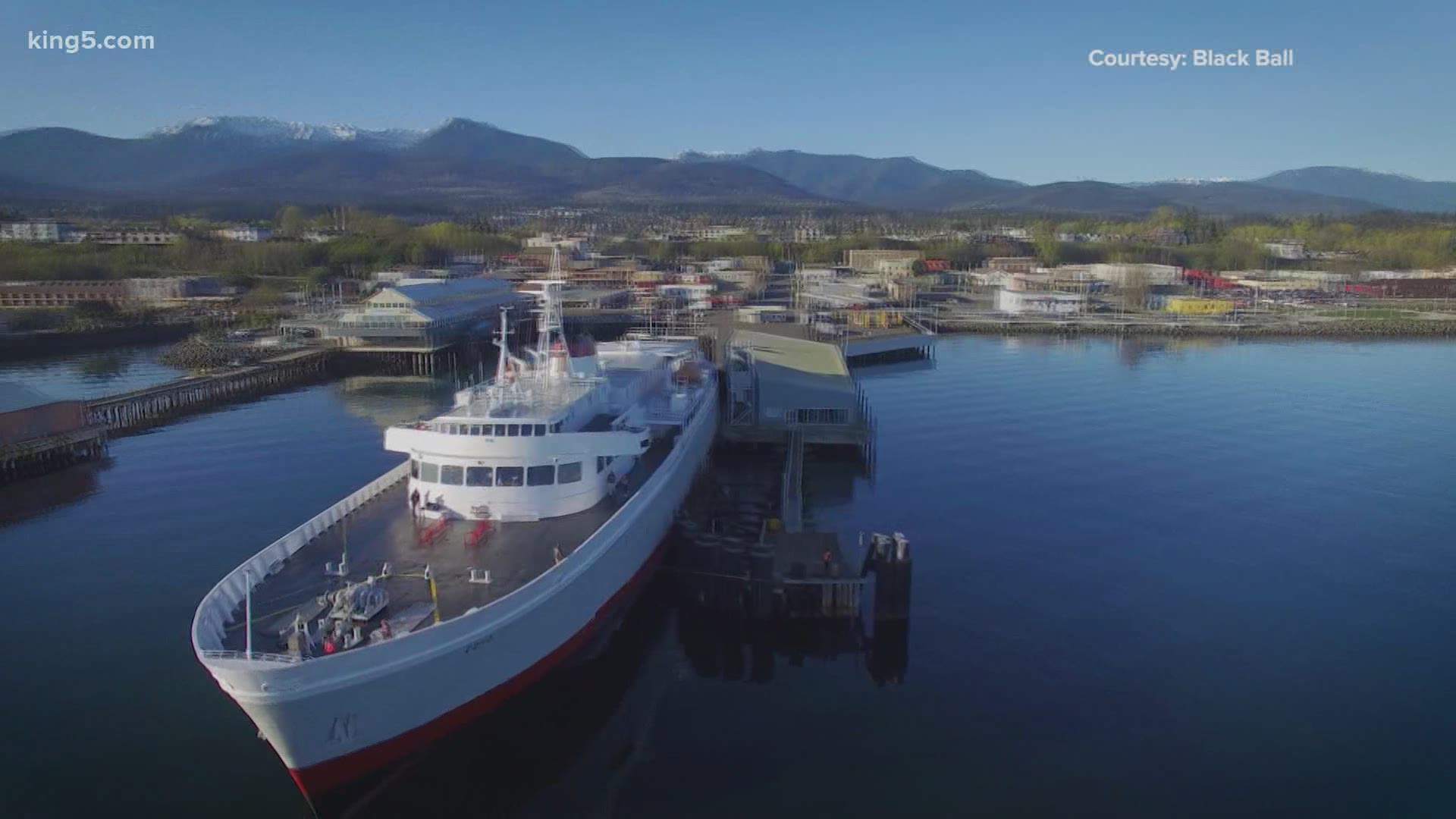PORT ANGELES, Wash. — A staple ferry route between Port Angeles and Victoria, B.C. covers just 22-nautical miles and takes about 90 minutes. It's been operating for more than half a century, but the coronavirus pandemic has the Black Ball Ferry Line docked.
Captain Ben Rowland commands the M.V. Coho on behalf of the Black Ball Ferry Line, and says it's a dream job.
“If I told you at 18 you would be standing here as ship’s captain what would you have told me?” I asked Rowland. “I would have told you you’re crazy,” he replied.
“This is my office and looking out my window I get to see Canada, Victoria every day and then coming into Port Angeles I get to look at the Olympic mountains,” Rowland continued.
Since 1959 the privately owned and operated vessel has navigated the Strait of Juan de Fuca transporting passengers' cars and cargo across the maritime border between the United States and Canada. But 2020 has brought a storm Rowland has never seen.
“I think about my crew all the time, they are sitting at home right now just waiting. And there is nothing we can do but wait. And that’s the hardest part,” Rowland said.
The M.V. Coho has been docked since March 30. The U.S.-Canada border remains closed to non-essential international travel in an effort to stop the spread of COVID-19.
“When it finally set in that we had to shut down it was pretty shocking,” said Rian Anderson, the vice president of terminal operations for the Black Ball Ferry Line.
Anderson is also one of the co-owners that acquired the company in 2012. Back then he considered it a bullet proof business plan – no one would have predicted an international border closure, let alone the lay offs that would follow.
“We’re just not used to laying anybody off. For 60 years it just wasn’t really part of what we were about or what we had to do. This is really unprecedented, yeah,” Anderson continued.
By its own prediction the company is losing $750,000 for each month they stay docked.
For Colleen McAleer, a Port of Port Angeles commissioner, failure isn’t an option.
“There will be probably hundreds of businesses that go to the wayside. There are probably ten times as many employees in this county that rely on Black Ball," she said.
McAleer represents one of the many parties invested in saving the Black Ball Ferry Line. It's a key stone that, should it fall, could bring small restaurants, retail shops and even hotels with it.
“They are critical, we have to make sure that they are here after this is all over and done with," she said.
But here's where things get tricky. Airlines have benefited from a coronavirus relief package, same with Amtrak, but because Black Ball is privately owned it has not qualified for federal relief.
“Yeah, well we’re used to sort of falling through the cracks when it comes to those things,” Anderson said.
The Port Commission is expected to provide a half million dollars to the company and isn’t charging moorage fees while the city is waving utilities.
“It’s very difficult I’ve been doing this for 20 years and it’s been a part of my life,” said Capt. Rowland.
Meanwhile, the 150 people that Black Ball employs, including the ship's captain, can do nothing but wait for word that the M.V. Coho can set sail again.

